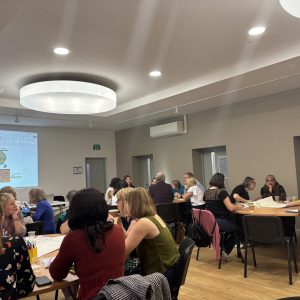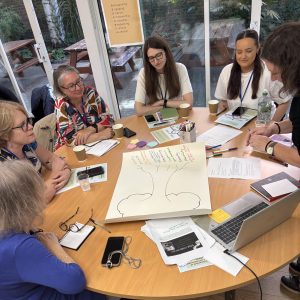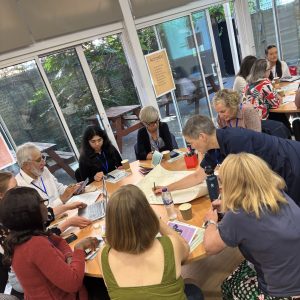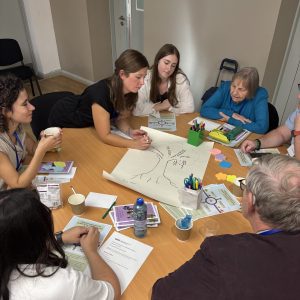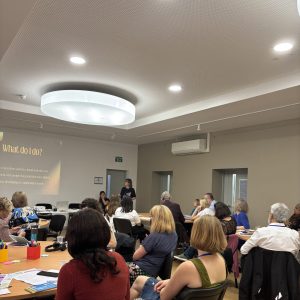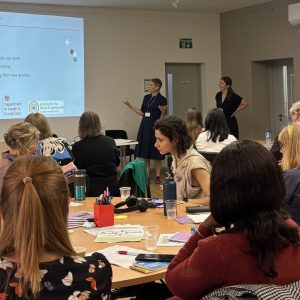Earlier this month, we gathered in London to celebrate the completion of our research project, which explored inclusive public involvement in dementia research. The event marked both the end of this exciting journey and the soft launch of a new website, and resources designed to better support researchers in the involvement of people living with Dementia in research
Funded by the Department of Health and Social Care (DHSC), led by Noami Morley and supported by Kristin Liabo, Vicki Goodwin and Tanya Hynd, this project has been shaped at every stage by Patient and Public Involvement and Engagement (PPIE). From the very beginning, the voices of people with lived experience, carers, and the wider community have guided the work and informed the resources we are now proud to share.
Why We Came Together
The London event was a celebration, but also a space for networking and shared learning. With support from the Vivensa Foundation, several early-career dementia researchers were able to attend, enriching the discussions and perspectives on the day.
Professor Vicki Goodwin opened the event with a reflection on the project’s beginnings. What started as a “blank page” quickly grew into a collaborative process rooted in learning together and highlighting on the importance of inclusive research. It was reaffirmed that we were gathered to
“shine a light on the work done, and celebrate all of the inclusive involvement.”
Voices That Shaped the Work
The heart of this project lies in the contributions of our PPIE collaborators. Shafiq Ahmed, Keith Oliver, Julia Burton, and Amanda Threlfall joined Naomi to share how people with lived experience, carers, and community partners shaped the direction of our work.
Together, we explored questions such as:
- What does good involvement in dementia research look like?
- How do we ensure ethical practice when working with people living with dementia?
- Where are the gaps, and how can researchers do better?
Through surveys, structured conversations, and engagement groups, participants highlighted the importance of empathy, shared learning, and stepping into one another’s shoes. As one contributor put it:
“We can learn as much as we can share – we are allies for everybody.”
What We Learned
Several key themes emerged from this collaborative process:
- Trust and relationships form the foundation of meaningful involvement.
- Respect and inclusivity ensure all voices are valued.
- Empathy and understanding are essential for ethical practice.
- Experience – of both researchers and people living with dementia – must guide the process.
These principles underpin our new website, which provides practical resources for researchers and public partners . The “roots” of the Dementia Tree represent these core values, while the “branches” offer guidance on getting started, involvement in practice, communication, support and development, and ethics. The website is expected to be published at the end of the year.
Looking Ahead
This project has shown that inclusive involvement is not just possible, but it is transformative. By listening deeply and working creatively, we can reshape dementia research to serve the people at its centre better.
We are grateful to the oversight group – including colleagues from other ARCs, including NIHR ARC East of England, the Alzheimer’s Society, and Innovations in Dementia – for their guidance and support.
Finally, we extend our thanks to everyone who shared their experiences and ideas with us. Your voices are not only heard but are now embedded in resources that will support researchers and communities across the UK.
As one collaborator so powerfully put it:
“This is the real stuff. It wasn’t laid down to us – we were there to learn as well as participate.”
We asked event attendees some thought-provoking questions, including:
- Why are events like this important?
- What does inclusive involvement in dementia research mean to you?
- What has been the highlight of the day for you?
- Can you give us one hope for the future of dementia research?
In this video, you’ll hear powerful responses that highlight the importance of inclusion, innovation, and hope for the future of dementia care and research.
Author


